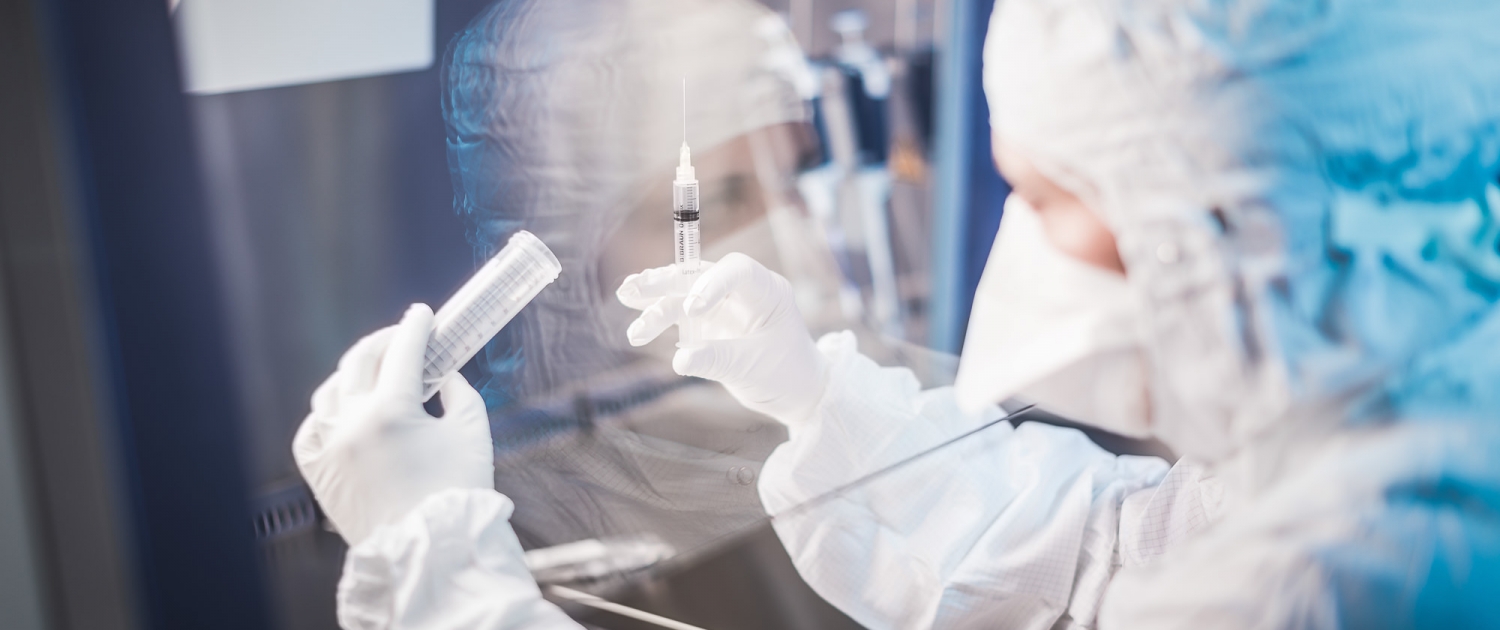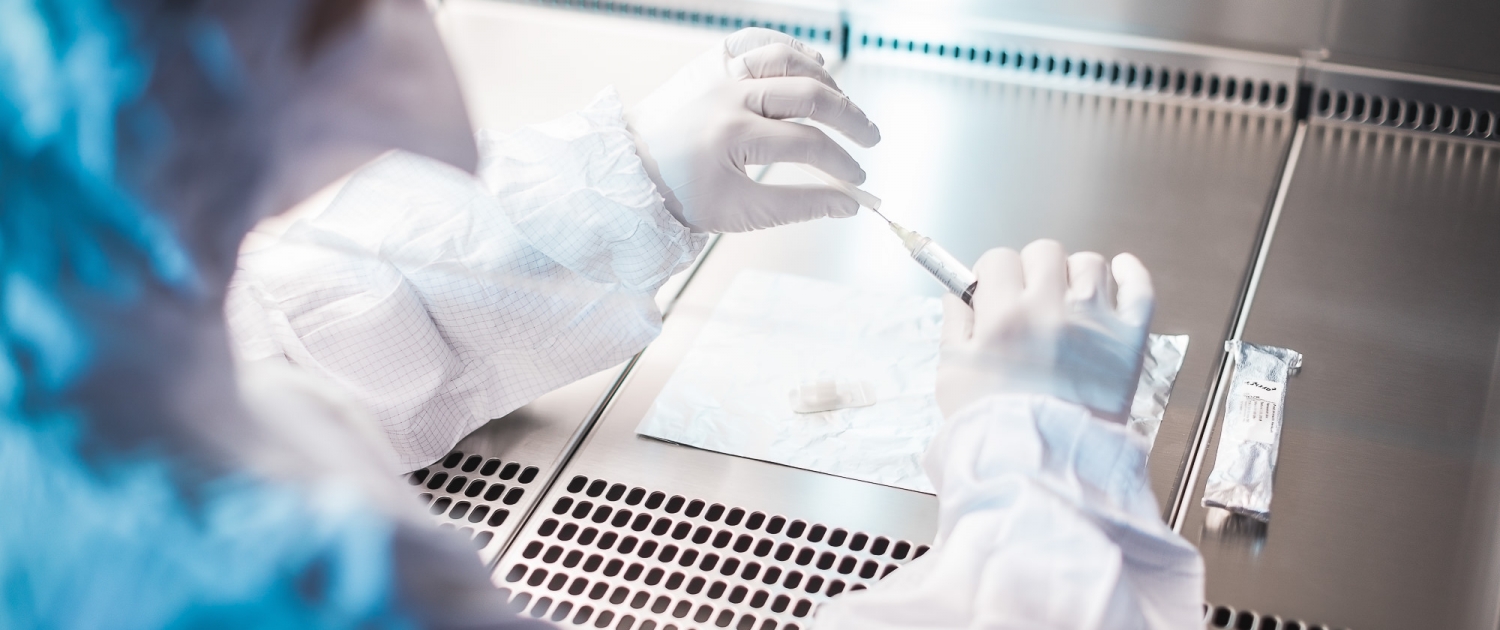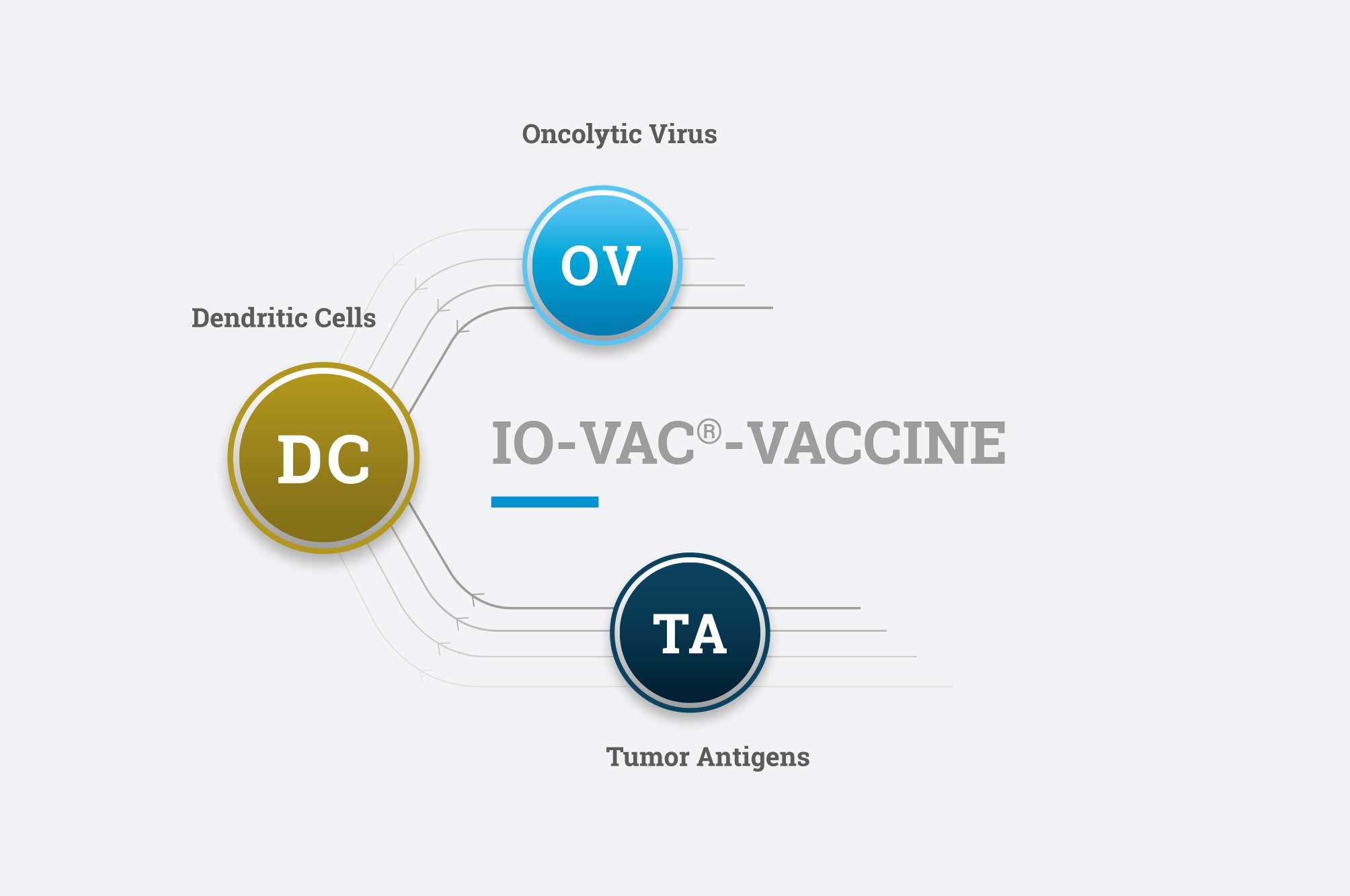Unmasking Cancer Cells and Fighting them Effectively
Through repeated vaccination with IO-VAC®, the immune system of the patient is activated and enabled to detect and uncover the camouflage mechanisms of the tumor cells and to take action against these. Here dendritic cells, acting as messengers, and a virus that is not harmful to humans, play the key roles.
Components and Functioning of the Personalized Vaccine
Dendritic Cells Activate an Immune Reaction Against the Tumor
Once a tumor has established itself, it develops biological camouflage mechanisms to prevent it from being attacked by the immune system. Through repeated vaccination with the IO-VAC® vaccine, the immune system is enabled to unmask these camouflage mechanisms and to recognize the tumor cells as dangerous and take up the fight against them effectively. Similarly to regular vaccines, the immune system can build up an immunological memory against the tumor antigens, so that long-term effectiveness is given.
Production of the Vaccine
The first step is taking a blood sample from the patient. Monocytes, a type of white blood cell, are isolated and grown into dendritic cells in the IOZK Laboratory. These are matured in the laboratory and loaded with information about tumor components and viral danger signals. After the vaccination, the dendritic cells present these tumor-specific molecules to the immune system of the patient and thus activate the T cells. The role of the T cells is to destroy sick cells. Due to the information the T cells received, the T cells can now recognize and attack tumor cells throughout the body.
The principle of vaccination with dendritic cells, on which the IO-VAC® is based, has been the focus of intense research interest over several years. The first approved medication of the type is Provenge (Sipuleucel T) against prostate cancer. This, however, does not make use of the patient’s own tumor material, but rather uses preselected antigens. In an advanced stage of clinical trials, a further vaccine (DC-Vax) showed promising results, but has not yet been approved. This vaccine also uses dendritic cells loaded with tumor lysate from the patient. It does, however, not contain an oncolytic virus to increase effectiveness.
“In the treatment of tumors, it is becoming ever more apparent, that there is no “the tumor” or “the patient”. Standardized treatment approaches, which do not take the individual situation into consideration, are only of limited use.”
Dr. med. Katharina Sprenger
Video: Dendritic Cells Activate an Immune Reaction Against the Tumor
Using Viruses Against Cancer
Certain oncolytic viruses can only multiply in tumor cells, destroying them in the process, while healthy cells can defend themselves against the virus. The Newcastle Disease Virus (NDV) is such a virus. It is totally harmless for humans: it exclusively multiplies in human tumor cells while not damaging healthy cells. Infected tumor cells send out danger signals, which alarm and activate the immune system. Thus NDV increases the effectiveness of IO-VAC®.
“Viruses are known as the cause of several illnesses. However, what is not so well known, is that certain viruses can be used for treating cancer. Over 100 years ago, doctors first observed that patients were healed from cancer after being infected with a certain virus.”
Prof. Dr. rer. nat. Volker Schirrmacher
Further Information on This Topic:
This post is also available in: German Spanish Russian Polish
Hohenstaufenring 30–32
50674 Cologne | Germany
T: +49 (0)221 – 420 399 25
F: +49(0)221 - 420 399 26
E-Mail: info@iozk.de




